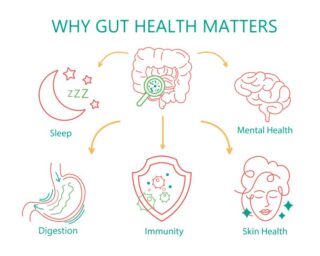The Health Benefits of Omega-3 Fatty Acids: Why You Need Them in Your Diet

Introduction
Omega-3 fatty acids are essential fats that your body cannot produce on its own. They play a crucial role in brain function, heart health, and overall well-being. In this article, we’ll explore the importance of omega-3s, the health benefits they offer, and the best food sources to include in your diet.
What Are Omega-3 Fatty Acids?
Types of Omega-3s:
- There are three main types of omega-3 fatty acids:
- ALA (alpha-linolenic acid): Found in plant-based sources like flaxseeds and walnuts.
- EPA (eicosapentaenoic acid): Found in fatty fish and marine oils.
- DHA (docosahexaenoic acid): Found in fish and seafood and is critical for brain health.
Essential Nutrient:
- Omega-3s are classified as essential fatty acids because your body cannot synthesize them, meaning you must obtain them through your diet or supplements.

Health Benefits of Omega-3s
Supports Heart Health:
- Omega-3s help reduce inflammation, lower blood pressure, and decrease triglyceride levels. They are associated with a reduced risk of heart disease and stroke.
Boosts Brain Function and Mental Health:
- DHA is crucial for brain development and function. Studies suggest that omega-3s may help improve memory, cognitive function, and reduce the risk of neurodegenerative diseases like Alzheimer’s.
- Omega-3s are also linked to improved mental health, helping to reduce symptoms of depression and anxiety.
Reduces Inflammation:
- Omega-3 fatty acids have strong anti-inflammatory properties, which can help reduce the risk of chronic diseases like arthritis, inflammatory bowel disease (IBD), and even certain cancers.
Promotes Eye Health:
- DHA is a key structural component of the retina. Adequate omega-3 intake is associated with a lower risk of macular degeneration, a leading cause of vision loss.
Best Food Sources of Omega-3s
Fatty Fish:
- Salmon, mackerel, sardines, and trout are among the best sources of EPA and DHA.
Plant-Based Sources:
- Flaxseeds, chia seeds, walnuts, and hemp seeds are excellent sources of ALA, though the body converts ALA to EPA and DHA at a low rate.
Supplements:
- For those who don’t get enough omega-3s from their diet, fish oil or algae-based supplements are great options to ensure adequate intake.
Conclusion
Omega-3 fatty acids are essential for optimal heart, brain, and eye health. Incorporating omega-3-rich foods into your diet, or taking supplements, can help protect against chronic diseases, support mental health, and improve overall well-being.
Summary:
- Omega-3 fatty acids, including ALA, EPA, and DHA, are essential fats crucial for heart, brain, and eye health.
- Omega-3s reduce inflammation, support mental health, and promote cognitive function and eye health.
- Fatty fish, flaxseeds, and chia seeds are excellent sources of omega-3s, and supplements can help fill gaps in your diet.

This article reviewed by Dr. Jim Liu, MD and Ms. Deb Dooley, APRN.
There’s nothing more important than our good health – that’s our principal capital asset.
#medical #telehealth #umedoc










